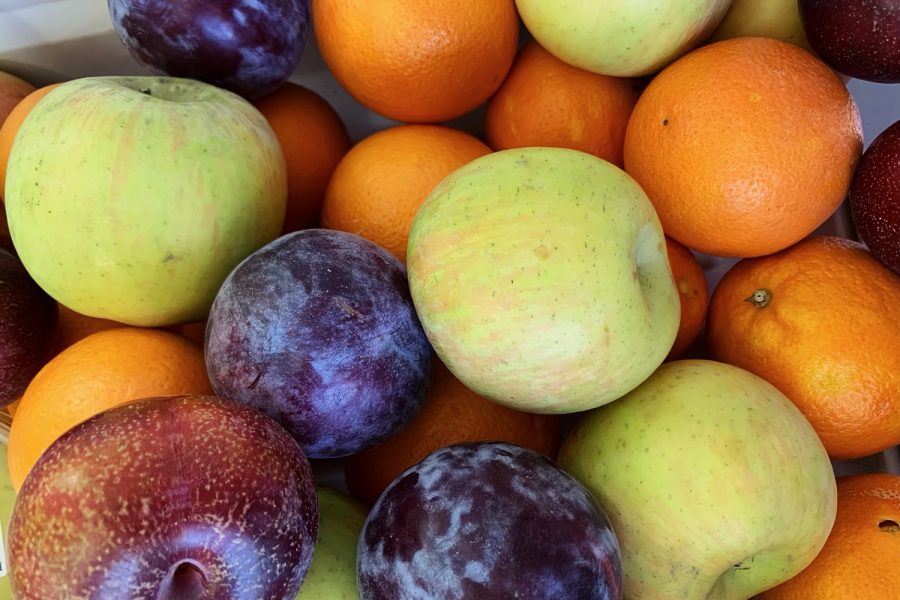Op-Ed: Healthy food is not a solitary issue
Photo credit: Rose Sarner
Healthy and nutritious food should be a given right to everyone in the United States. To not ensure that every community has access to healthy and fresh produce is a lasting fault of American society.
January 31, 2021
Throughout my life, I have always been the friend that orders a side of vegetables instead of french fries when I go out to dinner just because they taste good to me. I remember when I would go to the doctor for my physical and the doctor would ask my mom, “Is she eating her greens?” and my mom would respond, “She is almost eating too many greens.” In short, I have always cared about eating healthy.
Unfortunately, fresh and healthy food is a luxury that many people in the U.S. do not have. According to a study done by the USDA’s Economic Research Service, “11% of U.S. households are food insecure,” meaning many households are simply lacking access to food in general.
One of the significant causes of food insecurity according to the data presented in a 2012 study from Healthy People.gov, “shows that the average distance from U.S. households to the nearest supermarket was 2.19 miles.” Physical distance is a clear impediment to adequate access to food and one of the main issues that prevent many citizens from receiving healthy produce.
According to the article, “Access to Foods That Support Healthy Eating Patterns”, people living in predominantly Black low-income neighborhoods travel an average of 1.1 miles farther to the closest supermarket than people living in predominantly white low income neighborhoods.” Not only do people in low income communities have to travel further to have any access to food, once they get to the store, but the fresh and healthy food options are also extremely limited and, in many cases, non-existent. People in these neighborhoods and areas deserve access to a constant supply of fresh produce. Their produce should be no different than the large supply offered to cities and wealthy neighborhoods we all live in.
Unfortunately, the options available in low income areas tend to be low in nutrient density and, in the long run, are not sustainable and do not contribute to one’s long term health. Many people would argue that even if impoverished communities had access to healthy food stores, the healthy food sold there is often too expensive. Others would add that paying for public transportation and gas, plus the price of the food, quickly adds up and becomes too high. Instead, low income and rural residents are forced to fall back on their convenient, typically unhealthy and affordable options.
According to Norman Daniels, Ph.D., Professor of Ethics and Population Health at Harvard University, “healthcare preserves for people the ability to participate in the political, social, and economic life of society. It sustains them as fully participating citizens.” Healthy food is not a solitary issue, it affects many aspects of our lives, most notably our health.
In the United States today, citizens have free access to public education, road maintenance, law enforcement and more. However, one’s access to healthy produce and food is where health care should start. If people are living off of food from convenient stores that are filled with chemicals it will ultimately lead to their risk of diseases in the future. A person’s health is more important than road maintenance, a person’s health affects their entire life.









